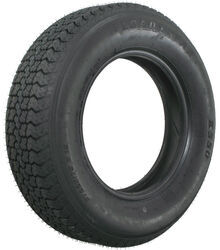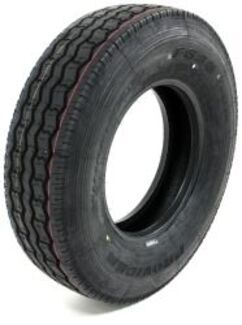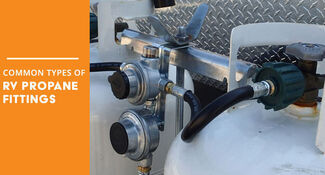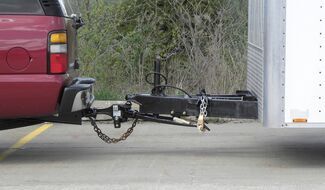
Will Higher Temperatures In a Desert Affect Maximum Tire Pressure in Trailer Tires
Question:
I have read the expert responses to ensuring proper tire pressure is maintained at near maximum levels to ensure best load carrying capability? I am wondering what happens when you move to higher temps of the desert and will it be necessary to ensure the tire pressure does not exceed the max air pressure for the tire?
asked by: Mike Z
Expert Reply:
Regarding tire inflation, trailer tires are built to withstand a lot of abuse. Lower air pressure is more of a problem than higher air pressure. A trailer tire can handle being slightly over-inflated better than being under-inflated, especially if the trailer that the tires are on is loaded to the maximum.
The rule of thumb on tire pressure change due to air temperature is 1 psi for every 10 degrees (Fahrenheit) in temperature change. In most parts of the United States the difference between average summer and winter temperatures is 50 degrees (Fahrenheit) which would be a 5 psi loss or gain. Which would be more of a problem on a trailer tire if it is 5 psi under-inflated.
Also, the difference between cold nighttime temperatures and hot daytime temperatures in most parts of the country is about 20 degrees (Fahrenheit) which would be a 2 psi loss or gain. In the desert regions I would think 50 to 60 degrees (Fahrenheit) would be an average temperature change from day and night.
I would recommend to check the trailers tire pressure in the morning before they are moved or heated up and set the maximum tire pressure at that time. Then, as the day will get hotter and the tire pressure will increase it will not be as much of a problem as if the tire pressure were lower with a load being put on them. When the temperature is reduced at night then the tire pressure would come down to the correct maximum tire pressure that was set that morning.

Product Page this Question was Asked From
Loadstar ST225/75D15 Bias Trailer Tire - Load Range D
- Trailer Tires and Wheels
- Tire Only
- Bias Ply Tire
- Load Range D
- 225/75-15
- 15 Inch
- M - 81 mph
- Kenda
more information >
Featured Help Information
Miscellaneous Media

Continue Researching
- Shop: Karrier ST225/75R15 Radial Trailer Tire - Load Range D
- Shop: Loadstar ST225/75D15 Bias Trailer Tire - Load Range D
- Q&A: Why Does Trailer Tire Weight Rating Drop When Used in Dual Tire Setup
- Q&A: Why Do Trailer Tires Have a Lower Capacity When Used in a Dually Setup
- Q&A: Explanation for Trailer Tire Tread that is Convex Rather Than Flat
- Shop: Kenda Karrier ST205/75R15 Radial Trailer Tire with 15" Black Mod Wheel - 5 on 4-1/2 - LR D
- Video: Choosing the Right Trailer Wiring
- Shop: Trailer Hitch
- Search Results: trailer tires and wheels
- Q&A: Lug Nut Torque Chart for Trailer Wheels
- Article: Trailer Tire Sizing
- Q&A: What is the Difference Between Load Range C and D ST175/80D13 Trailer Tires
- Shop: etrailer Hitch Pin Alignment Collar for Hitch Accessories - 2" Hitches
- Article: Trailer Wiring Diagrams
- Search Results: spare tire carrier
- Shop: Trailer Wiring
- Shop: Suspension Enhancement
- Q&A: Which is Better for Highway Use 4.80-12 or 5.30-12 Trailer TIres
- Shop: Tekonsha Prodigy P3 Trailer Brake Controller - 1 to 4 Axles - Proportional
- Article: How to Measure Your Trailer Wheel Bolt Pattern
- Search Results: trailer jack
- Shop: Brake Controller
- Q&A: What is the Difference Between Load Range B and C Trailer Tires
- Shop: Tekonsha Prodigy P2 Trailer Brake Controller - 1 to 4 Axles - Proportional
- Search Results: hitch
- Article: Brake Controller 7- and 4-Way Installation Kit (ETBC7)
- Search Results: 25580
- Shop: Redarc Tow-Pro Liberty Brake Controller - Dash Knob - 1 to 2 Axles - Proportional
- Shop: Fifth Wheel Hitch
- Video: Timbren Axle-Less Trailer Suspension System Installation






























